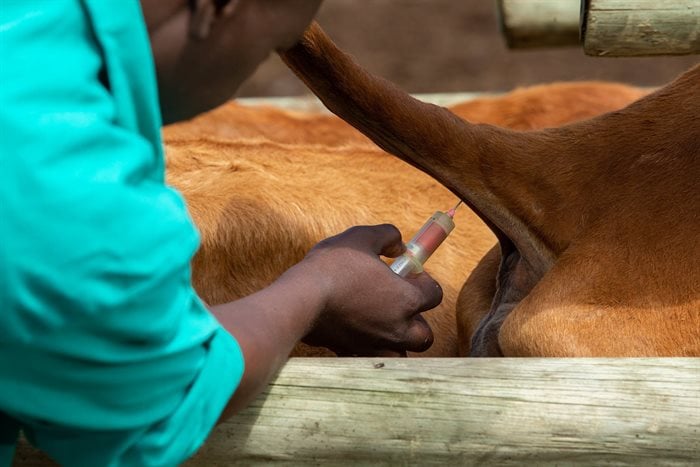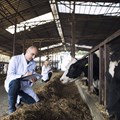The South African Veterinary Council (SAVC) has expressed its concern over potential crises in animal health and food safety and security due to a shortage of veterinarians in the country.

Source: Provided
The situation has been exacerbated by the removal of veterinarians from the local critical skills list in 2022. Reinstating vets on this list will help the country retain qualified vets and aid foreign veterinarians who want to practise here, says SAVC president Dr Nandipha Ndudane.
The SAVC has been liaising with the Department of Agriculture, Land Reform and Rural Development (DALRRD), and both the SAVC and DALRRD are engaging with the Department of Home Affairs to this end.
Alarming recent statistics show high numbers of vets leaving the country. This means South Africa faces a severe skills shortage in a profession that is deemed critical to ensuring food safety and security.
Young vets looking to emigrate
“A recent survey by the South African Veterinary Association found that a fifth of young vets aged 25 to 29 polled intended to emigrate,” says Ndudane. “Our own records show that we are losing up to 150 vets a year to emigration, as there are between 10 and 15 vets a month requesting letters of good standing from the SAVC to enable them to practise abroad – be it temporarily or permanently.
“Something urgently needs to be done to stem the exodus of these highly qualified and sought-after professionals, provide more tertiary training opportunities for vets in South Africa, and make it easier for foreign vets and foreign South African-qualified students to practise here.”
She says the current situation is raising alarm bells in a country that only has 60 to 70 vets per million citizens, already far below the international norm of 200 to 400 vets per million.
“Already, there is anecdotal evidence that some veterinary positions, in both the private and public sectors, cannot be filled. Such a shortage can have an adverse effect on the availability and provision of veterinary services, especially to rural communities, with a devastating impact on livestock health and food safety.”

Source: Provided
Ensuring food safety, security
To remedy the situation, the SAVC has been talking to DALRRD and other stakeholders to urgently add veterinarians back onto the critical skills list when it comes up for review. This is not only so that South Africa can meet its animal healthcare needs in the future, but also to ensure food safety and security.
As more young South African vets consider leaving the country, one solution to fill the skills gap is to encourage overseas-trained vets to come and work here. However, the removal of vets and veterinary nurses from the critical skills list in February 2022 makes it harder, if not impossible, for foreign vets to obtain a work visa for South Africa, explains Ndudane.
Veterinarians who qualified in the United Kingdom and Australasia may practise in South Africa without having to write SAVC exams. In order to do so, they first have to perform a year’s compulsory community service (CCS) through DALRRD once they have registered with the SAVC.
However, says Ndudane, with the removal of vets from the critical skills list, qualified foreign vets are likely to run into difficulties obtaining work permits and posts in South Africa because their skills are not listed as being scarce.
Incentivising young professionals to stay in SA
Furthermore, foreign students who qualify as veterinarians at the Faculty of Veterinary Science at the University of Pretoria – currently the only accredited tertiary education facility in the country offering a Bachelor of Veterinary Science degree – are also not able to complete the year of CCS that would entitle them to work here. This means there is little incentive for these young professionals to remain in South Africa to carve out a career.
“All of this makes it incredibly difficult for foreign vets and students to come to South Africa to add capacity to our veterinary profession, which is facing a severe skills crisis,” says Ndudane.
“While we need to look at retention strategies and accrediting more tertiary education facilities to offer a veterinary science qualification, which is in the works, the SAVC continues to engage with the government and stakeholders to take urgent steps to address the skills deficit in the veterinary professions. We need to curb the brain drain and ensure our country has enough vets to meet its current and future animal healthcare and food production needs.”





























